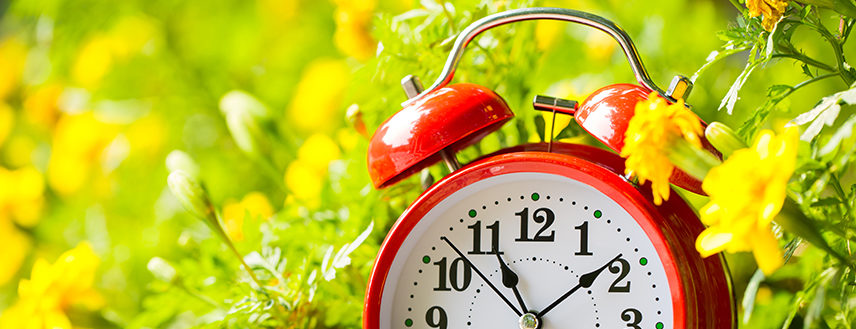
Saturday, March 12th, daylight savings ends, and we move our clocks ahead one hour. Meaning we’re losing an hour of sleep! That one hour can wreak havoc on our internal clocks. Our bodies are extremely sensitive to changes in light and schedules. It will now be darker in the morning and lighter longer in the evening. It takes time for our bodies to adjust. Studies have shown that traffic accidents increase for about a week following the time change in both the spring and fall. So, why are we so sensitive to these subtle changes and what can we do to ease the transition?
Sleep Hygiene
Sleep hygiene is a term used to describe those actions you can take to create a sleep-friendly environment and increase your chances of falling asleep, staying asleep, and sleeping soundly. Basic sleep hygiene includes:
- Reducing or eliminating caffeine and alcohol before bed
- Exercising several hours before bedtime
- Turning off screens several hours before bed
- Avoiding bedtime snacks
- Incorporating calming routines before bed to relax, such as a hot bath
It is also important to go to bed and get up at roughly the same time every day. Sleep hygiene is especially crucial during changes in sleep schedules due to travel or daylight savings.
Cortisol
Cortisol is highest in the morning and lowest at night. With a shift in sleep habits, this rhythm is thrown off as well. Symptoms can include fatigue, change in blood sugar and feeling like your mind is “foggy.” For most people, the condition is temporary and once the body adapts to the time change, the natural circadian rhythm of cortisol production returns as well. If it doesn’t or the symptoms are particularly bothersome one thing you can do is make sure you’re eating regularly. Cortisol helps elevate blood sugar when it begins to drop to low so eating regularly will take the strain off of your cortisol system and allow it to focus on re-regulating itself.
Melatonin and Light
Melatonin is secreted by the pineal gland in the brain. It is secreted during darkness. With the increase of light in the evening hours, your melatonin levels are likely to be impacted. Make sure you’re exposing yourself to a lot of light during the “awake” hours and limiting light during sleeping hours. If you get up to use the bathroom, don’t turn on the light. Instead, have a small, dim nightlight in place. A great way to combat this physiological mix up is to take melatonin an hour or so before going to bed. This will temporarily increase your melatonin levels and allow you to get better quality sleep and signal your body that it needs to re-regulate its melatonin production. Think of it as resetting your internal clock.
With a few simple changes, you can minimize the negative effects of daylight savings.

Leave a Reply